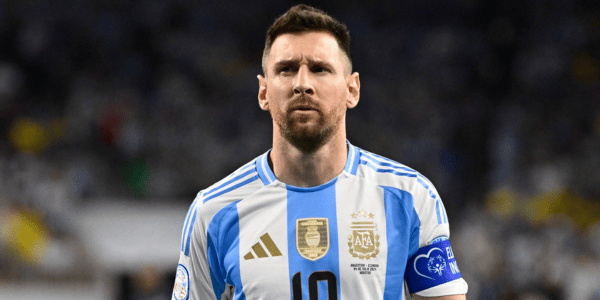- The Resilience Brief
- Posts
- Real-life resilience - Lionel Messi
Real-life resilience - Lionel Messi
As a young boy, he needed daily injections to grow

As a kid, Lionel Messi was called "the Flea" because he was so small.
When living in Argentina at age 11, he was diagnosed with Growth Hormone Deficiency (GHD). GHD is caused when the individual is missing the critical gland that produces growth hormones in the body.
The treatment required expensive and uncomfortable daily injections, which were not sustainable for a working-class family.
However, even at that young age, FC Barcelona was already showing an interest in the boy. They invited him to join their youth academy, La Masia, with the promise of covering the medical expenses required for his GHD condition. His family left Argentina and moved to Spain.
With the medical assistance, Messi was able to grow, but the outcome resulted in him having to manage a body in which his muscles require a lot more energy to work. Basically, his muscles use the energy in his body a lot faster than other players on the field. This is why, if you ever watch him in a game, he seems to walk a lot in each match, rather than run extensively. Other players will be running up and down the field, but Messi usually walks. He uses that time to conserve energy, scan the field, wait for his moment to pounce….and then he pounces!
Messi’s list of accomplishments is massive, capped off with a 2022 World Cup Championship with Argentina. It is no question that he is in an elite class of athletes. And to think that Messi is as good as he is, even with this physical condition, is even more astounding.
It’s no question that his GHD condition forced him to approach the game differently. He didn’t have the strength and stamina of other players, but he leaned into what he did have. After all, his physicality provides a lower centre of gravity and balance, it allows him to keep the ball closer when dribbling, he has tremendous acceleration and agility, and perhaps most importantly, it forces him to scan the field and make decisions in a split second.
Battling a challenging disease at a young age, leaving friends and family behind to move countries, identifying areas of weakness, and then doubling-down on areas of strength - all of this is a perfect demonstration of resilience.
Taking a page out of Messi’s book for creative professionals.
People who can adapt to their environment the best are usually the ones who are most likely to thrive. In Messi’s case, his adaptability was more important than physical size, strength and stamina. He needed to find a way to play his best game, despite his challenges. In our case, our adaptability will be more important than technical skills and early morning starts. We need to find a way to play our best game, despite whatever gets in our way – new technology, shrinking budgets, lofty expectations, a thousand things on the to-do list.
How we respond to those challenges is the only thing that really matters. Here are just two simple tools to consider:
Do hard things. As proven by Messi’s story, things are inevitably not going to go our way all the time. Even the introduction of a new technology can frazzle some of us, but when we allow ourselves to be frazzled, we are the only ones to suffer. What if we could see a challenge as an adventure instead? This simple reframe of an annoying moment will allow us to feel a sense of adventure when we step outside our comfort zone and try something new. The best way to practice this? Do uncomfortable things on purpose. We can take a cold shower when we really want a steaming hot one, or forgo a cup of coffee one morning. We can prove to ourselves that yes, we can do hard things. So when the time comes to do something quite difficult, we have a nice amount of confidence in our back pocket and we’re ready to pull it out.
Focus on what we can control. There are 90 minutes in a game of football/soccer. However, a player usually only gets the ball for approximately 2-3 minutes, which means that there are another 87 minutes when the ball is not in a player’s control. However, that doesn’t mean the players are useless for the rest of the game. There are plenty of other things that are in a player’s control at that time - how they run, defend, expend energy, and how they think! It’s the same for us in our day to day lives. We might be waiting for direction from the boss or client, or being distracted with projects that are unimportant. We need to use that time and energy to focus on what is in our control, and to potentially prepare for the moment that will certainly arrive. We can do this by researching, studying, reviewing, analyzing…and when that moment finally arrives, we are prepared to strike.
Resilience is a skill that we can all tap into, but it needs to be developed.
I teach workplaces and individuals strategies to do amazing work and still maintain good mental health. These are preventative ideas and practical tools, so that we can thrive when obstacles come our way. Book a free discovery call today.
Until next time friends, stay resilient!
Carre @ Resilient Marketing Minds
Reply